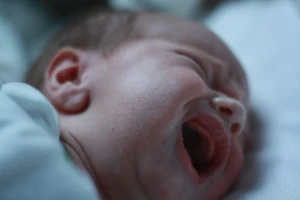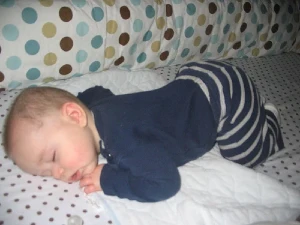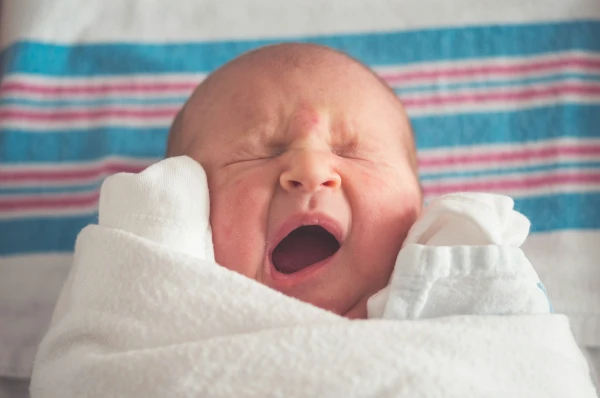A very interesting article was published recently published on the NewsTalk Blog where a mom wondered if her baby could possibly be traumatized where sleep was concerned. Interestingly, there is research that suggests that babies can remember trauma…but not like we would normally assume. Babies are wired a bit differently than adults, in that they haven’t developed “memory” yet, at least not what we normally associate with memory.
possibly be traumatized where sleep was concerned. Interestingly, there is research that suggests that babies can remember trauma…but not like we would normally assume. Babies are wired a bit differently than adults, in that they haven’t developed “memory” yet, at least not what we normally associate with memory.
Instead, babies remember traumatic events through their feelings, which means that they experience sensations when something that was traumatic is repeated. A common example is children who have had reflux, which is known to cause discomfort eating and trouble sleeping, who have been treated, but still experience trouble sleeping, and while eating. Some parents are surprised to find that their baby’s reflux is also the cause of their baby’s sleep problems. When a baby with reflux eats and then lays down, it hurts. This is because reflux happens when food and stomach acid flows back into the esophagus and sometimes out of the baby’s mouth.
Why Your Baby May Fight Sleep
Based on the research, it’s entirely possible that a baby who has had pain from reflux that has prevented him from sleeping may be afraid to go to sleep, and therefore fight sleep, even when his reflux has been treated and is under control. Babies don’t remember traumatic events with their thinking memories, but rather they react. In some cases, reflux babies can also have traumatic reactions to eating, either from breast or bottle due to the pain caused by their reflux, even after the problem has been controlled.
Know What to Look For
Babies who are having a traumatic reaction often stare unblinking, will jerk their arms and legs, have increased crying, or an exaggerated startle response. While it can be difficult to tell if your child’s resistance to sleep is due to trauma such as reflux, if you know that the problem has been resolved and your child is still refusing to sleep, accompanied by a trauma response, your baby may be experiencing sleep trauma.

If you have a baby who was suffering from reflux, you know all too well how cranky and fussy your baby can be when she doesn’t sleep well. Once your baby’s reflux is under control, many parents assume that sleep will just happen, but unfortunately that’s not always the case. Sure, sometimes babies just start sleeping better, but much of the time, there are those sleep trauma responses that prevent your baby from settling, and causes a fear association with sleep.
Use a Soothing Routine
To help combat this, make sure that you have a soothing bedtime routine in place, and use a soothing voice and reassuring words to help your baby understand that the trauma is in the past. When sleep coaching a baby who has a trauma response to sleep, you may find that the process takes a bit longer, and requires that you slow down to help reassure your baby that sleeping is a good, not a scary, thing. To do this, I recommend that you use a gentle approach, like The Sleep Lady Shuffle, to help your baby ease into sleep. You do not want to further traumatize your baby by attempting cry-it-out methods that could exacerbate your baby’s fears and frustrations.
Remember, if your baby shows signs of trauma when you’re putting her in the crib, you may need to take a step back, and increase your soothing techniques. As parents, we walk a fine line between making sure that our babies are settled and happy and creating a sleep crutch, which is my way of referring to a sleep association such as rocking or patting to sleep.
It’s okay to reassure your baby through intermittent patting or shushing or even to pick up to calm, just make sure that when you see your baby start to drift off to sleep that you stop assisting her so that she can learn to fall asleep on her own.
Did you sleep coach your child? What led you to that decision? Please visit The Sleep Lady Facebook Page and share your story!



